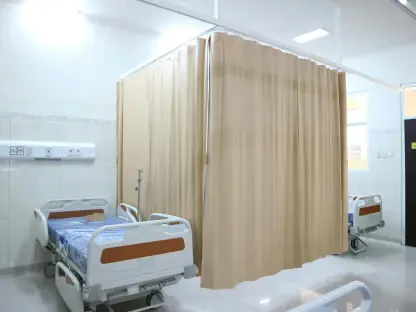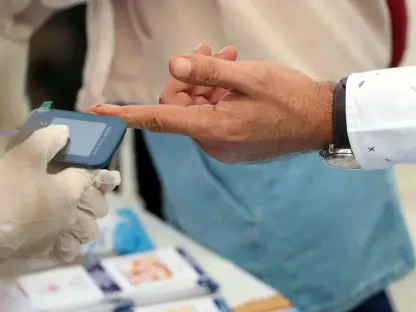In Singapore, a staggering 80% of primary care services are delivered through private general practice (GP) clinics, dwarfing the reach of public polyclinics and positioning the private sector as the backbone of everyday healthcare. Despite this dominance, research within these clinics remains strikingly underdeveloped, creating a critical gap in evidence that truly reflects the realities of most patient care settings. The disconnect is glaring—findings from public institutions often fail to account for the unique challenges, patient demographics, and operational dynamics of private practices. This mismatch not only limits the applicability of existing research but also hampers the ability to tailor healthcare solutions to the majority of the population. Addressing this disparity is not just a matter of academic interest; it is an urgent necessity to ensure that primary care evolves in step with the needs of those it serves most. By exploring the motivations driving private GPs to engage in research, the barriers holding them back, and the actionable strategies to bridge these gaps, a clearer path emerges for transforming this vital sector. Central to this effort are practice-based research networks (PBRNs) like the Singapore Primary Care Research and Knowledge (SPARK) network, which offer a framework to support and amplify research initiatives. This discussion delves into the lived experiences of private GPs, uncovering why engagement remains low and how systemic, practical, and collaborative solutions can ignite a new era of evidence-based progress in Singapore’s primary care landscape.
Understanding the Motivations for Research Engagement
Why Private GPs Want to Participate
Private GPs in Singapore often harbor a deep-seated passion for research, driven by an intrinsic desire for personal fulfillment and intellectual curiosity about pressing health topics. Many express a genuine interest in exploring areas such as lifestyle interventions, chronic disease management, and the burgeoning field of telemedicine, seeing these as avenues to expand their own knowledge while addressing real-world patient needs. This internal drive is not merely about professional development; it reflects a commitment to staying at the forefront of medical advancements. For some, the act of investigating specific health challenges becomes a source of satisfaction, a way to break the routine of daily clinical work and engage with broader scientific questions. The enthusiasm is palpable among those who view research as a means to deepen their understanding of complex issues directly affecting their patient base.
Beyond personal growth, altruism plays a significant role in motivating private GPs to step into the research arena, with many citing a desire to contribute to the wider medical community. The idea of generating knowledge that could benefit not just their own clinics but also healthcare systems at large resonates strongly with them. This sense of purpose is often expressed as a wish to give back, to ensure that insights from their unique practice settings inform broader health strategies. Such motivations reveal a layer of dedication that transcends immediate clinical obligations, highlighting a willingness to invest time and effort into initiatives with long-term societal impact. This altruistic mindset underscores the potential for private GPs to become key players in shaping primary care, provided the right support structures are in place to nurture their involvement.
External Drivers for Involvement
On the extrinsic side, the potential to directly improve patient care through research serves as a powerful incentive for private GPs in Singapore. Many recognize that evidence generated in public polyclinics often fails to translate effectively to the private sector due to differences in patient demographics and practice constraints. By engaging in research, these practitioners see an opportunity to develop guidelines and interventions that are specifically tailored to their settings, ensuring better outcomes for the majority of primary care recipients. This practical, outcome-focused motivation often stems from a frustration with the status quo, where generalized findings fall short of addressing the nuanced needs of their patients.
Additionally, contributing to the scientific literature and filling knowledge gaps specific to private practice environments fuels GP engagement. The drive to produce relevant, context-specific data is seen as a way to elevate the credibility and influence of the private sector within Singapore’s healthcare ecosystem. Many GPs express curiosity about how their findings could challenge existing assumptions or introduce innovative approaches to common health issues. This external motivation is not just about personal recognition but about ensuring that the majority of primary care delivery—occurring in private clinics—receives the attention it deserves in academic and policy circles. Such aspirations highlight the untapped potential within this sector to reshape healthcare narratives through targeted, meaningful research.
Identifying Barriers to Research Participation
Individual Challenges
One of the most pervasive barriers to research participation among private GPs in Singapore is the relentless pressure of time constraints, which leaves little room for pursuits beyond immediate clinical and administrative responsibilities, making it a significant challenge to balance their workload. With daily schedules often packed with patient consultations—sometimes seeing dozens in a single day—many practitioners find the idea of dedicating hours to research activities nearly impossible. The demanding nature of their work, compounded by the need to maintain high standards of care, often relegates research to a distant priority. This challenge is particularly acute for solo practitioners or those in smaller clinics, where there is no buffer to absorb additional tasks without directly impacting patient access.
Compounding the issue of time is a widespread lack of formal training or familiarity with research processes, which deters many general practitioners (GPs) from engaging in such endeavors. Navigating the intricacies of study design, securing ethics approvals, and applying for grants can feel like an insurmountable hurdle for those without prior academic exposure. This knowledge gap often breeds a sense of inadequacy, with some practitioners admitting they feel unprepared to tackle the procedural complexities involved. Even when interest exists, the absence of foundational skills or mentorship to guide them through the initial steps creates a significant roadblock, reinforcing the perception that research is a field reserved for others with more specialized expertise.
Practice-Level Obstacles
At the practice level, a lack of support from clinic staff and management poses a formidable barrier to research participation for private GPs in Singapore. Research is frequently viewed as an extraneous activity, unrelated to the core mission of patient care, which leads to resistance from both practitioners and support personnel. Without a culture that values or prioritizes research, integrating such activities into daily workflows becomes a contentious issue. Staff shortages or reluctance to take on additional responsibilities further exacerbate the challenge, leaving GPs to shoulder the burden alone, often at the expense of their primary duties.
Financial constraints also loom large, as the costs associated with research—such as hiring locum doctors to cover clinical duties—can be prohibitive for many private practices. Smaller clinics, in particular, struggle with limited budgets that must prioritize operational needs over exploratory initiatives. The expense of dedicating time or resources to research, without immediate financial return, creates a significant disincentive. Moreover, concerns about disrupting established patient care routines add another layer of complexity, as any interruption to normal operations risks both revenue and patient satisfaction. These practice-level obstacles highlight the need for external support to offset costs and foster an environment where research can coexist with clinical priorities.
Systemic Disparities
Systemically, the research landscape in Singapore often appears tilted in favor of public institutions, creating a stark disparity that sidelines private general practitioners (GPs) from meaningful engagement. Public polyclinics benefit from established access to funding, institutional review boards (IRBs), and structured support systems, resources that are frequently out of reach for private practitioners. This imbalance perpetuates a perception that research is predominantly a domain for public settings, leaving private GPs feeling excluded from the broader academic ecosystem. Such structural inequities not only limit opportunities but also diminish the incentive to participate when the playing field seems inherently uneven.
This systemic bias is further reinforced by the lack of tailored pathways for private general practitioners (GPs) to access grants or navigate ethics approvals, processes that are often streamlined for public entities. Many practitioners express frustration at the bureaucratic hurdles they face, which are compounded by a lack of institutional backing to guide them through. The resulting sense of isolation from the research community discourages involvement, as private GPs struggle to see themselves as equal contributors to scientific progress. Addressing these disparities requires a concerted effort to create inclusive policies that recognize the critical role of the private sector in primary care and ensure equitable access to the tools and opportunities needed for research.
Project-Specific Issues
Beyond broader systemic and practice challenges, project-specific barriers also hinder research participation among private GPs, particularly when study designs are not aligned with the realities of primary care settings. Many research protocols are perceived as overly complex or impractical, failing to account for the fast-paced, patient-centric nature of private clinics. For instance, studies requiring extensive data collection or frequent follow-ups can disrupt clinical workflows, placing an unfeasible burden on already stretched resources. This mismatch often leads to reluctance among GPs to engage, as the effort required outweighs the perceived benefits of involvement.
Additionally, the absence of dedicated research staff within private clinics exacerbates these project-specific challenges, leaving general practitioners (GPs) to manage all aspects of a study on their own. Without coordinators or assistants to handle administrative tasks, data entry, or patient recruitment logistics, the responsibility falls squarely on practitioners who are already juggling multiple roles. This lack of support can render even well-intentioned projects untenable, as the additional workload becomes unsustainable. Tailoring research initiatives to fit the operational constraints of private practices, alongside providing on-the-ground assistance, emerges as a critical need to make participation viable and appealing for these busy professionals.
Facilitators to Enhance Research Involvement
Financial and Resource Support
A pivotal facilitator for increasing research involvement among private GPs in Singapore lies in providing financial support to alleviate the economic burdens associated with such activities, ensuring that practitioners can engage without undue stress. Funding for locum cover, for instance, could enable practitioners to dedicate time to research without compromising patient care or clinic revenue. Many GPs emphasize that while they do not expect personal profit from research, compensation to offset operational costs is essential. Grants or subsidies to hire temporary staff during research periods would significantly lower the barrier to entry, making participation a realistic option rather than a financial sacrifice.
Equally important is the allocation of resources to employ research assistants who can manage the logistical and administrative demands of studies. This support would free general practitioners (GPs) from the minutiae of data collection and paperwork, allowing them to focus on clinical insights and patient engagement. This kind of targeted assistance addresses the dual challenge of time and expertise, ensuring that research does not become an overwhelming addition to existing responsibilities. By investing in these financial and human resources, stakeholders can create a more conducive environment where private GPs feel empowered to contribute without the constant worry of operational trade-offs.
Leveraging Practice Strengths
Private GP clinics in Singapore possess unique strengths, particularly their distinct patient demographics, which can be a powerful asset in advancing primary care research. Unlike public polyclinics, private practices often serve a diverse cross-section of the population, offering insights into health trends and challenges that are not fully captured in public settings. Many GPs recognize this as an opportunity to contribute valuable data, believing their patient base reflects the majority of primary care interactions in the country. Harnessing these characteristics could position private clinics as indispensable contributors to research that shapes relevant, context-specific health policies.
Furthermore, the relative ease of patient recruitment in private settings stands out as another facilitating factor that can be leveraged to boost research efforts. General practitioners (GPs) often maintain close, long-term relationships with their patients, fostering trust that can streamline enrollment in studies. This advantage contrasts with larger, less personalized public systems where recruitment might face greater logistical hurdles. Capitalizing on these inherent strengths requires research frameworks that prioritize the unique contributions of private practices, ensuring that studies are designed to tap into their specific capabilities. By doing so, the sector can play a leading role in generating evidence that directly benefits the broader primary care landscape.
Simplifying Research Processes
Simplifying research processes to align with the pragmatic, fast-paced culture of general practice emerges as a crucial facilitator for increasing GP involvement in Singapore. Many practitioners advocate for clear, straightforward guidelines that minimize complexity and fit seamlessly into their daily routines. Research protocols should be designed with the constraints of private clinics in mind, avoiding cumbersome requirements that disrupt patient care or demand excessive time. Streamlined workflows—such as pre-designed templates for data collection or simplified ethics applications—could make participation far less daunting, encouraging more GPs to take part without feeling overwhelmed by procedural intricacies.
Moreover, ensuring that non-medically trained staff can assist with basic research tasks is another key aspect of simplification that can enhance engagement. By developing user-friendly tools and training programs, research responsibilities can be distributed across clinic teams, reducing the burden on general practitioners (GPs) themselves. This approach not only eases the workload but also fosters a collaborative environment where research becomes a shared goal rather than an individual chore. Tailoring processes to the operational realities of private practices signals respect for their unique context, paving the way for greater buy-in and sustained participation in meaningful scientific endeavors.
Recognition and Incentives
The lack of recognition for contributions to research often demotivates private GPs, making formal acknowledgment a vital facilitator for boosting involvement in medical studies and advancements. Many practitioners feel their efforts go unnoticed, overshadowed by the prominence of public sector or academic researchers. Offering academic titles, co-authorship on publications, or public recognition through health authorities like the Ministry of Health could serve as powerful incentives. Such gestures validate the role of private GPs in advancing medical knowledge, reinforcing their importance within the research community and inspiring greater commitment to these initiatives.
In addition to formal accolades, smaller but meaningful incentives can also play a significant role in encouraging participation among private general practitioners (GPs). Opportunities to present findings at conferences, receive professional development credits, or gain visibility through research networks can enhance motivation. These forms of acknowledgment address the intrinsic desire for professional validation, countering the perception of being secondary players in the research landscape. By prioritizing recognition, stakeholders can cultivate a culture where private GPs feel valued for their contributions, transforming research from a peripheral activity into a celebrated and integral part of their professional identity.
Encouraging Collaboration
Collaboration between private GP practices and academic institutions offers a promising avenue to enhance research involvement by combining clinical insights with scholarly expertise, creating a powerful partnership for innovation. Many GPs express a willingness to contribute patient data and practical perspectives, provided they are not solely responsible for the complex aspects of research such as grant applications or study design. Partnering with universities or research bodies allows for a division of labor, where academics handle procedural and analytical components while GPs focus on frontline implementation. This synergy not only reduces the burden on practitioners but also ensures that studies are grounded in real-world applicability.
Building these collaborative frameworks also fosters a sense of shared purpose, bridging the gap between clinical and academic spheres in Singapore’s healthcare system. Regular interactions through workshops, joint projects, or consultation panels can strengthen relationships, ensuring that research agendas align with the needs of private practices. Such partnerships create a mutual learning environment, where general practitioners gain exposure to research methodologies while academics benefit from direct access to diverse patient populations. By prioritizing collaborative models, the research ecosystem can harness the complementary strengths of both sectors, driving innovation in primary care with greater efficiency and impact.
The Role of Practice-Based Research Networks (PBRNs)
Building Infrastructure for Research
Practice-based research networks like SPARK in Singapore are uniquely positioned to provide the infrastructure necessary to support private GPs in their research endeavors, addressing many of the logistical and resource challenges they face. Offering training programs tailored to the needs of practitioners with limited academic backgrounds can demystify the research process, equipping them with essential skills in study design, data analysis, and ethics compliance. Access to tools such as data extraction software for electronic medical records further simplifies participation, enabling clinics to contribute valuable information without a significant additional workload. This kind of structural support is critical for leveling the playing field and empowering private GPs to engage confidently.
Additionally, PBRNs can serve as a conduit for resources that are often inaccessible to private practices, such as online journals, research templates, and mentorship from seasoned investigators. By centralizing these assets, networks like SPARK reduce the isolation many general practitioners experience when attempting to navigate the research landscape independently. Mentorship, in particular, offers a personalized approach to skill-building, guiding practitioners through initial projects and fostering long-term capacity for independent research. This robust infrastructure transforms research from an abstract concept into a tangible, achievable goal, ensuring that private general practitioners have the backing needed to contribute meaningfully to primary care advancements.
Fostering Communication and Community
Effective communication and relationship-building stand as essential pillars for Practice-Based Research Networks (PBRNs) in enhancing research engagement among private general practitioners (GPs) in Singapore, helping to overcome professional isolation. Organizing networking events, seminars, and collaborative forums allows practitioners to connect with peers and academic researchers, sparking ideas and fostering a sense of community. These interactions are vital for breaking down barriers between clinical and scholarly worlds, creating opportunities for dialogue about research interests and potential projects. By facilitating such exchanges, PBRNs ensure that GPs feel part of a larger ecosystem, rather than solitary actors struggling to balance competing demands.
Equally critical is the need for clear, transparent communication from PBRNs about research opportunities, expectations, and processes, ensuring that private GPs are well-informed and motivated to participate. Regular updates through newsletters, dedicated online platforms, or direct outreach can keep practitioners engaged, providing clarity on how they can contribute and what support is available. This openness helps demystify research, making it more approachable for those hesitant due to perceived complexity. By prioritizing communication and community-building, PBRNs like SPARK can cultivate a collaborative culture where private GPs feel supported and valued, driving sustained involvement in research initiatives.
Sharing Results and Benefits
Transparency in sharing research outcomes is a cornerstone for maintaining engagement among private general practitioners (GPs) within Practice-Based Research Networks (PBRNs), as many express frustration when their contributions seem to disappear into a void without feedback. Providing regular updates on study findings, even in preliminary forms, demonstrates the tangible impact of their involvement, reinforcing the value of their time and effort. Whether through reports, presentations, or accessible summaries, ensuring that GPs see the results of their data contributions helps build trust in the research process. This visibility can transform participation from a one-off task into a meaningful, ongoing commitment to advancing primary care knowledge.
Moreover, translating research outcomes into actionable benefits for private practices further amplifies motivation, showing general practitioners (GPs) how their work directly improves patient care or informs policy. For instance, sharing evidence-based guidelines derived from studies they contributed to can offer practical tools for enhancing clinical outcomes. Practice-Based Research Networks (PBRNs) can facilitate this by organizing workshops or disseminating tailored resources that highlight real-world applications of research findings. Such efforts underscore the relevance of GP involvement, ensuring that the benefits are not just academic but also directly applicable to their day-to-day work. By prioritizing transparency and practical impact, PBRNs can sustain long-term interest and participation in research activities.
Pathways to Systemic Change
Bridging the Public-Private Divide
Addressing systemic inequities between public and private sectors in Singapore’s research landscape is fundamental to fostering greater involvement of private general practitioners (GPs) in scientific endeavors. Public institutions often enjoy prioritized access to grants, ethics approvals, and institutional support, creating a structural divide that marginalizes private practitioners. Leveling this playing field requires policies that ensure equitable access to funding opportunities and streamlined Institutional Review Board (IRB) processes tailored to the constraints of private clinics. By dismantling these barriers, the healthcare system can send a clear message that research is a shared responsibility, not a privilege reserved for public entities, thereby encouraging broader participation.
Furthermore, establishing dedicated channels for private GPs to engage with national research frameworks can help integrate their perspectives into broader health strategies. Collaborative initiatives between government bodies, academic institutions, and private sector representatives could facilitate the creation of inclusive grant programs or ethics committees sensitive to the unique challenges of private practices. Such measures would not only enhance access but also build confidence among GPs that their contributions are valued at a systemic level. Bridging this public-private divide is essential for creating a cohesive research ecosystem where all primary care providers, regardless of setting, can play a pivotal role in advancing medical knowledge and patient outcomes.
Tailoring Solutions to Diverse Practices
Recognizing the diversity among private GP clinics in Singapore—from solo operations to larger group practices—is crucial for designing effective research support that accommodates varying capacities and needs. Smaller clinics often face acute resource constraints, lacking the staff or financial buffer to engage in research without significant external assistance. In contrast, larger practices may have more operational flexibility but require tailored study designs to leverage their broader patient base effectively. Developing adaptable solutions, such as tiered funding models or scalable research protocols, ensures that support matches the specific context of each clinic, maximizing participation across the spectrum of private practices.
Additionally, customizing training and mentorship programs to address the unique operational realities of different practice sizes can further enhance engagement in research activities. For solo practitioners, one-on-one guidance or virtual resources might be most practical, minimizing disruption to their limited schedules. Larger clinics, on the other hand, may benefit from group training sessions or on-site mentorship to accommodate their broader staff and resources.









